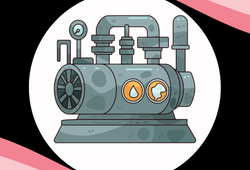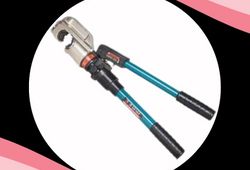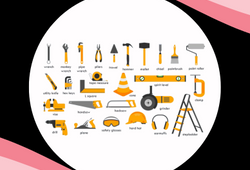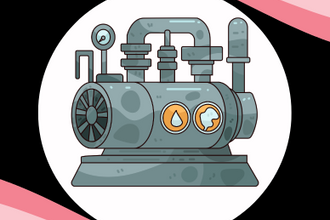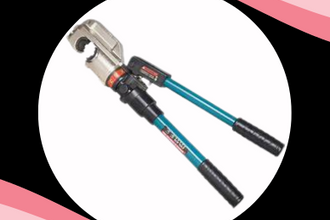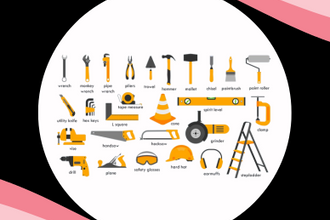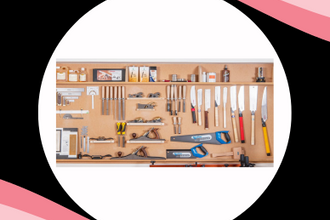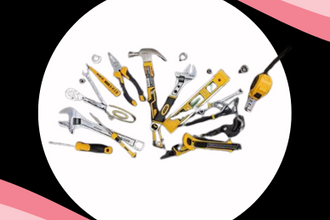
When it comes to drilling and fastening jobs, one question always pops up: Cordless vs. Corded Drill, which one should you buy? Both tools are powerful in their own ways, and both have loyal fans. If you’re setting up a workshop, handling home projects, or even tackling professional tasks, picking the right drill matters more than you think. Let’s break it down in simple terms so you can make an informed decision with confidence.
What is a Drill Machine?
A drill machine is a power tool used to make holes or drive fasteners into different materials like wood, plastic, metal, or concrete. Today, you’ll find two main types: corded electric drills that run on continuous electricity, and cordless drills that operate on rechargeable batteries.
Whether you’re assembling furniture, putting up shelves, or tackling heavy-duty construction, a drill is one of the most essential tools to have in your kit.
What is the Best Corded Drill?
The best corded power drill is one that delivers steady torque, handles tough materials, and lasts for years. Top models like the DeWalt corded drill and Milwaukee corded drill are praised by professionals for their durability and power. If you need maximum strength, a corded hammer drill or corded impact drill will handle concrete, brick, or metal with ease.
Key Features of Corded Drills
- Unlimited runtime – No worrying about charging batteries.
- Steady power – Keeps torque consistent, even during long jobs.
- Lightweight design – No battery pack makes them easier to hold for long periods.
- Lower cost – Generally more affordable since you don’t need to buy extra batteries or chargers.
How Does a Corded Drill Work?
A corded electric drill plugs directly into a power source. Once connected, the motor spins the drill bit at high speeds, giving you steady drilling power that doesn’t fade until you unplug it.
What is a Corded Drill Used For?
- Corded drills are perfect for:
- Drilling into concrete, masonry, and metal
- Heavy-duty construction and industrial projects
- Long jobs where continuous, reliable power is required
- Limitations of Corded Drills
- You always need an outlet nearby.
- The cord can get in the way, causing tangles or limiting movement.
- Not the best choice for remote or outdoor projects without electricity.
What is the Best Cordless Drill?
Cordless drills have come a long way. Models like the DeWalt 20V Max cordless drill, Milwaukee M18 Fuel, and Makita 18V LXT are considered some of the best-rated cordless drills on the market. For homeowners, a small cordless power drill cordless option works well for quick DIY jobs. For professionals, the most powerful cordless drill offers high torque and long-lasting battery life.
Key Features of Cordless Drills
- Freedom of movement – Work anywhere without being tied to a cord.
- Versatility – Great for light to medium tasks around the house or on job sites.
- Convenience – No need for extension cords or power outlets.
- Ongoing innovation – Lithium-ion batteries keep getting stronger and faster to charge.
How Does a Cordless Drill Work?
A cordless drill runs on a rechargeable battery, usually lithium-ion. The battery supplies power to the motor, which spins the bit. When the battery runs out, you simply recharge it or swap in a spare.
What is a Cordless Drill Used For?
- Cordless drills are best for:
- Household repairs and DIY projects
- Assembling furniture or hanging shelves
- Outdoor jobs and remote sites with no electricity
- Quick fixes that don’t need heavy-duty torque
Limitations of Cordless Drills
- Battery life can run out during long projects.
- Cordless drills often weigh more because of the attached battery.
- Higher upfront cost, especially if you need spare batteries.
Comparing Cordless vs. Corded Drill
When deciding between a corded drill and a cordless drill, it helps to compare them side by side:
Power: Corded drills generally have higher torque and are better for heavy-duty jobs. Cordless drills are catching up, but still can’t always match corded power for tough materials.
Mobility: Cordless wins here. No cables, no outlets—just grab it and go.
Weight: Corded drills are lighter, but cordless models are improving as batteries get smaller.
Cost: Corded drills are usually cheaper. Cordless drills cost more because of batteries and chargers.
Convenience: Cordless drills are faster to set up and more versatile. Corded drills are reliable when you need uninterrupted work.
Choosing the Right Drill for Your Needs
Assessing Your Needs
Before deciding between a cordless vs. corded drill, think about how, where, and how often you’ll use it. A few points to guide you:
Type of Projects: For small to medium jobs like furniture assembly, shelves, or quick repairs, a cordless drill is usually more than enough. For tougher materials like concrete or metal, a corded drill is the safer bet.
Work Location: If you’ll be moving around, working outdoors, or far from outlets, cordless gives you the freedom you need. If most of your work is at a bench, in a shop, or near outlets, corded is practical and reliable.
Usage Frequency: For occasional fixes around the house, cordless is convenient. If you’re using a drill every day, especially for hours at a time, a corded model saves you from battery swaps and downtime.
Budget: Cordless drills cost more because of batteries and chargers. If you’re budget-conscious but need consistent power, a corded drill might make more sense.
Suggestions
For DIY and Home Projects
Go with a cordless drill. It’s light, easy to carry, and versatile enough for everything from hanging curtains to assembling a garden shed.
For Professionals
Both have a place. A cordless drill works best when you’re on the move, working at different job sites, or dealing with tight spaces. Just keep a spare battery handy. A corded drill is the workhorse for heavy-duty drilling where high torque and nonstop power are essential.
For Industrial or Workshop Use
A corded drill shines here. Its consistent output, durability, and ability to push through tough materials without stopping make it the go-to tool for demanding environments like construction sites or fabrication shops.
Conclusion
At the end of the day, the cordless vs. corded drill debate comes down to your needs and work style. If you value mobility, quick setups, and flexibility, a cordless drill is a smart pick for everyday DIY or on-the-go tasks. But if you’re after raw power, consistent performance, and long working hours without interruption, a corded drill will serve you best. Many professionals actually keep both on hand—one for convenience and one for heavy-duty projects. By weighing your projects, environment, and budget, you can confidently choose the drill that will make your work easier and more efficient.



